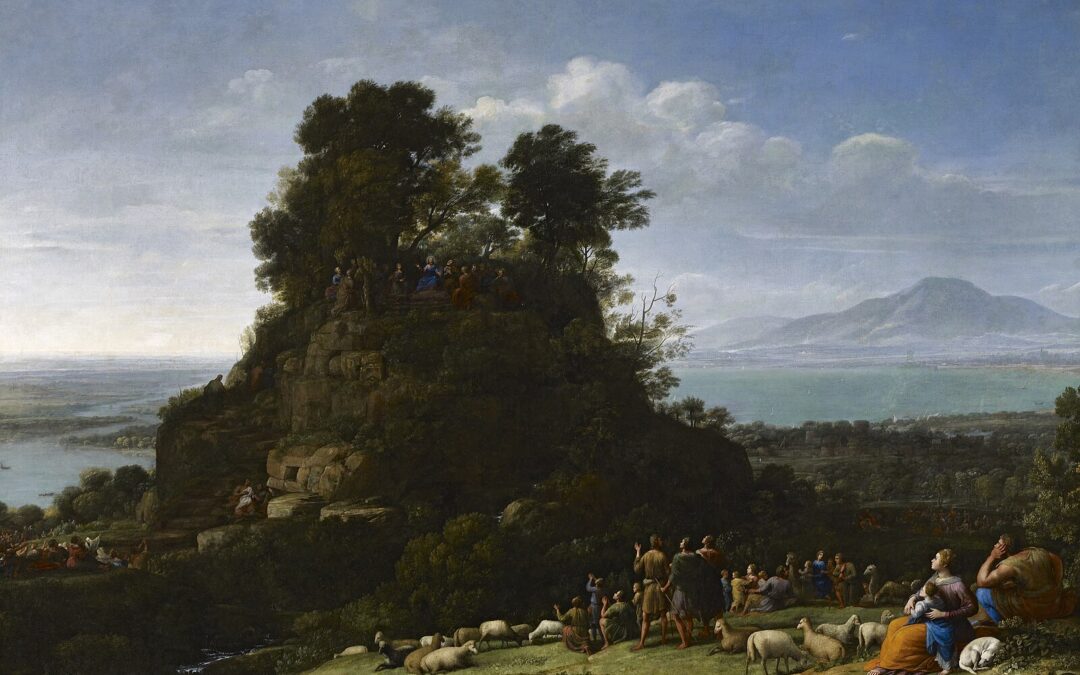When Herod the king heard this, he was troubled, and all Jerusalem with him. And when he had gathered all the chief priests and scribes of the people together, he inquired of them where the Christ was to be born. So they said to him, “In Bethlehem of Judea, for thus it is written by the prophet: ‘But you, Bethlehem, in the land of Judah, Are not the least among the rulers of Judah; For out of you shall come a Ruler Who will shepherd My people Israel.’ ”
Matthew 2:3-6
Wise men from the East arrive with an unsettling request. They would like to pay homage to the new King of the Jews. Why is this such a problem? They pose their request to the man who considered himself the current king of the Jews. Herod and all Jerusalem are troubled. ”When mamma ain’t happy, ain’t nobody happy.” Herod being troubled and troubling the people is very Saul-like (1 Samuel 14:24). This is because a new anointed King from Bethlehem is very David-like. Wise men, “Magi,” from the East who have inherited the wisdom of Solomon (1 Kings 4:29-34) through Daniel (Daniel 2:47-48), come to worship the greater Son of David (Matthew 12:42). The inauguration of a new kingdom spells the doom of the old (1 Samuel 20:30-31). Here is yet another, greater, Bethlehemite, a Star with His own star posing a deep threat to an upstart Edomite like Herod (Numbers 24:17-19). We know Herod’s requests of the chief priests and scribes (Matthew 2:3) and the wise men (Matthew 2:7-8), are duplicitous. Herod seeks to kill his rival (Matthew 2:13, 16, 20). The answer given by the religious experts lacks Matthew’s exact fulfillment formula, “that it might be fulfilled”, but it has the same force. Even Christ’s enemies declare His praise! “So they said to him, “In Bethlehem of Judea, for thus it is written by the prophet: 6 ‘But you, Bethlehem, in the land of Judah, Are not the least among the rulers of Judah; For out of you shall come a Ruler Who will shepherd My people Israel.’ ”” (Matthew 2:5-6).
The quote comes from Micah 5:2, a particular Messianic prophecy which comes late in the context of a larger integrated series of prophecies regarding the New Covenant (Micah 4:1-8; 5:2-5a), and the troubles (4:9-10a; 5:1) and triumphs (4:10b-13; 5:5b-15) of the Old Covenant. These two chapters of Micah are an answer to the woes of covenant unfaithfulness detailed in his first three chapters. God’s complaint against His people is picked up again in Micah 6:1-7:13 and resolves into a plaintive prayer for God to pardon His people (Micah 7:14-20). Micah begins his messianic masterpiece in chapter 5 by borrowing heavily from his greater contemporary, Isaiah. Micah’s vision of New Covenant Zion and the peace of nations who gather there, builds on Isaiah’s vision (Isaiah 2:1-5; Micah 4:1-5). Micah prophesies that the LORD Himself will personally and directly reign over His people in Mt. Zion forever (Micah 4:6-8). That this everlasting reign from Mt. Zion will come in the “Latter days” (Micah 4:1) is clarified by the turmoil of Assyrian afflictions and Babylonian exile (Micah 4:9-10; 5:3, 5) and the victory of the Jews over the nations during the Persian dominion (Micah 4:11-13; 5:7-15). It is after these significant events that the “latter days” of the Old Covenant begin (Daniel 10:13). It is the advent of Christ, His death and resurrection, and the advent of the Holy Spirit that signal the “last days” of the Old Covenant (Acts 2:14-36). This covenant is brought to an end by Christ’s ascendant judgment of Jerusalem (Matthew 24:1-35). While the Jews have much to look forward to in terms of God’s deliverance, protection and salvation through their Messiah, for “now” (Micah 4:9; 5:1) they must face God’s judgment. God will give Zion up to the dominion of her enemies from the days of Assyrian afflictions and Babylonian birth pangs until the arrival of her Messiah (Micah 4:10; 5:3).
The full Messianic prophecy to which Matthew alludes is Micah 5:2-5a “But you, Bethlehem Ephrathah, Though you are little among the thousands of Judah, Yet out of you shall come forth to Me The One to be Ruler in Israel, Whose goings forth are from of old, From everlasting.” Therefore He shall give them up, Until the time that she who is in labor has given birth; Then the remnant of His brethren Shall return to the children of Israel. And He shall stand and feed His flock In the strength of the LORD, In the majesty of the name of the LORD His God; And they shall abide, For now He shall be great To the ends of the earth; 5 And this One shall be peace. The Chief priests and scribes quote enough of Micah’s prophecy to direct Herod and the Magi to the right town. What is left out of their quotation (perhaps in favor of self-preservation before a jealous king) is the powerful description of this new King. He is from everlasting. He is not only prophesied of from long ago (Genesis 3:15), but He is, Himself, an eternal Ruler for His people (Micah 4:6-7). His arrival brings the Babylonian labor pains to a satisfying conclusion as He is the Child (Isaiah 9:6-7; Matthew 1:17; Revelation 12:1-5). He will gather and keep His flock as the Good Shepherd (John 10:11-16). His reign will spread to all the earth (Isaiah 49:6-7; Habakkuk 2:14). He Himself is the Mediator (Genesis 28:10-22; John 2:51; 1 Timothy 2:5), the temple (John 2:19-22), the atonement (Daniel 9:24; Romans 5:11), the covenant (Isaiah 49:8), indeed, the peace (Isaiah 49:10; Romans 5:1-11) between God and Man (1 Peter 3:18). His royalty is a clear threat to a snake like Herod, and a bright hope to those in need of redemption.
The Sermon on the Mount: The Man—Part 3, “Out of Egyp”

